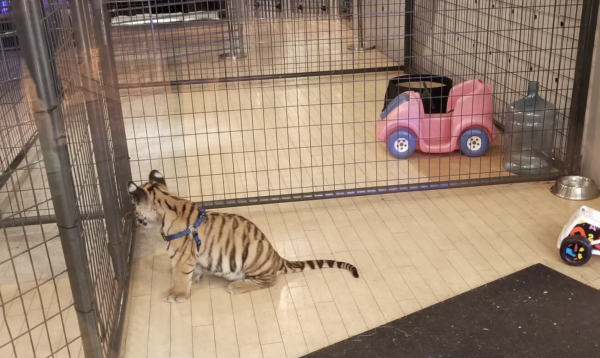The Dangers of Scapegoating
As the MLB nears the pinnacle of its season, ESPN has begun re-airing some of its finest
baseball documentaries. One of which, “Catching Hell”, chronicles the nightmare of long-time
Cubs fan, Steve Bartman, before, during, and after his fateful moment in October of 2003. In
the 8 th inning of the NLDS, with the Cubs beating the Marlins 3-1 and five outs away from
reaching the World Series, the ball flew Bartman’s way. Natural instinct brought his arms into
the air in an attempt to fulfill what is any baseball fans’ dream, catching a foul ball. Trying to
make a spectacular play, Moises Alou, the Cubs’ left fielder, leaped into the wall and tried to
navigate an ocean of outstretched hands. His glove went up and over the rail, but never made
contact with the ball. Instead, the ball met Bartman’s palms, and, despite his efforts to reel it in,
ended up in the grasp of another spectator. In the immediate aftermath, it was not clear who
or what interfered with the play. As the Cubs gave up runs and momentum, the replay of
Bartman’s interference was shown repeatedly. Even though the Cubs made errors that cost
them that game, the crowd began to turn on the ordinary man in the turtleneck, chanting,
“A**hole…A**hole…A**hole!” Fans targeted Bartman with beer and other debris. He was
escorted out of the game by the police and has not made a public appearance since. The
Bartman incident, one of the most prominent cases of scapegoating in U.S. sports history, is
comparable to Donald Trump’s attempt to blame the democratic process for his impending
loss.
Despite his many blunders on the campaign trail, exposed character flaws, and falling
poll numbers, Donald Trump continues to predict a “rigged election”. Before Trump’s subpar
performance in the first debate and the release of the 2005 Access Hollywood tape in which he
boasted about sexually assaulting women, his poll numbers were slowly rising. The race was
tightening. At this time, Trump was Moises Alou, reaching for that ball, hoping to stun the
world. Then, after the tape went public, his campaign went into freefall. Leaders from both
parties renounced Trump’s words, and key GOP figures pulled their endorsements. For many of
them, this latest incident was the tip of the iceberg. The “Mexican thing”, as Mike Pence would
say, was not enough. The proposal to ban all Muslims from the United States was not enough.
The feud with the Gold Star family, the Khans, was not enough. But after the vulgar words in
the tape and the subsequent allegations from women claiming that Donald Trump had touched
them inappropriately, enough was enough. Just like the Cubs, Trump’s own errors caused him
to fall behind. Just like the long-suffering Cubs fans, Trump searched for a scapegoat. The U.S.
electoral process has become Trump’s Steve Bartman.
Trump’s official website has a message for all supporters, “Volunteer to be a Trump
Election Observer…Help me stop Crooked Hillary from rigging this election!” Trump’s
statements about a “rigged election” are dangerous and unfounded. An investigation
conducted by Justin Levitt of Loyola Law School concluded that, in the past fifteen years, there
have been only 31 credible instances of voter fraud in the United States, “To put this in
perspective, the 31 instances come in the context of general, primary, special, and municipal
elections from 2000 to 2014. In general and primary elections alone, more than 1 billion ballots
were cast in that period.” Despite this evidence, Trump seems to think that a national election
can be systematically rigged against him. His theory suggests that the Democratic and
Republican officials who oversee the election process, which is run by the states and
administered at the local level, are secretly conspiring to hand the presidency to Hillary Clinton.
It’s hard enough for one person to keep a secret, but thousands? Not a chance.
Trump promises to “Make America Great Again.” In fact, America is great, and one of
the pillars of its greatness is its 220-year history of peaceful transfer of political power after
elections. Trump’s scapegoating is dangerous because it threatens to break this longstanding
tradition, which, according to political scientist Shaun Bowler, “constitutes a sort of glue that
holds the polity together, providing a cohesion that is lacking in less-well- established
democracies.” Graceful losers are critical to the stability of our nation. In 2000, Al Gore
conceded the presidential election after the Supreme Court ruled to stop the Florida recount,
which effectively handed the presidency to his opponent, George W. Bush. Although he won
the popular vote, Gore accepted the result. He realized that the future of the country depended
on his reaction. In his concession speech he said, “The U.S. Supreme Court has spoken. Let
there be no doubt, while I strongly disagree with the Court’s decision, I accept it. Tonight, for
the sake of our unity as a people and the strength our democracy, I offer my concession.”
Gore’s response subdued much of the anger among his strongest supporters, but Trump’s
predictions are only fanning the flames. At a rally on October 12, a woman told Mike Pence, “If
Hillary Clinton gets in…I’m ready for a revolution because we can’t have her in.”
A recent Politico poll showed that 73 percent of Republicans think the election could be
stolen from Donald Trump. Should Trump lose the election, there seems to be a real risk of civic
unrest. When the Cubs lost game six of the NLCS, that’s when the debris started raining down
on scapegoat Steve Bartman. The aftermath of the incident on October 13, 2003 damaged
Bartman’s life forever, and now, thirteen years later, in October of 2016, Donald Trump’s
scapegoating could damage the very foundation of the American democracy


